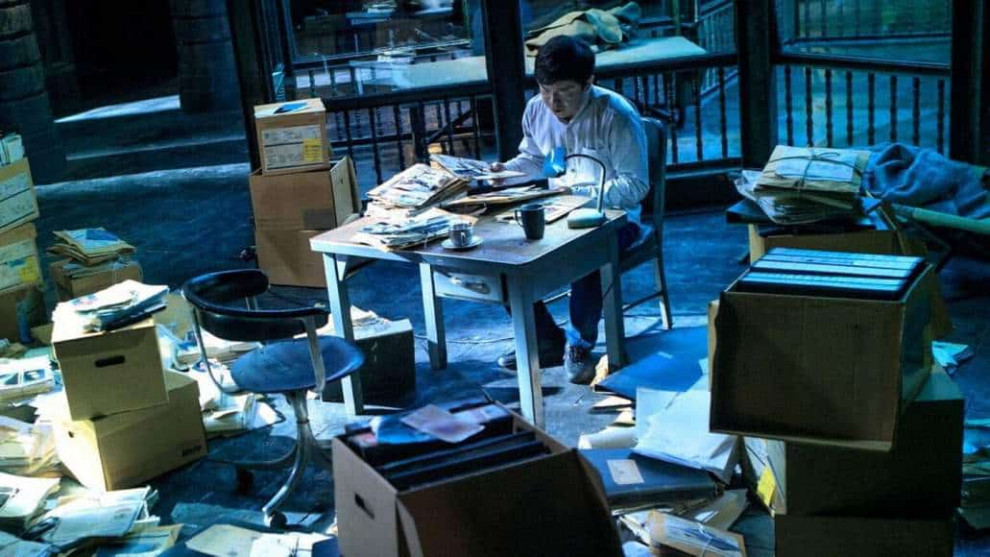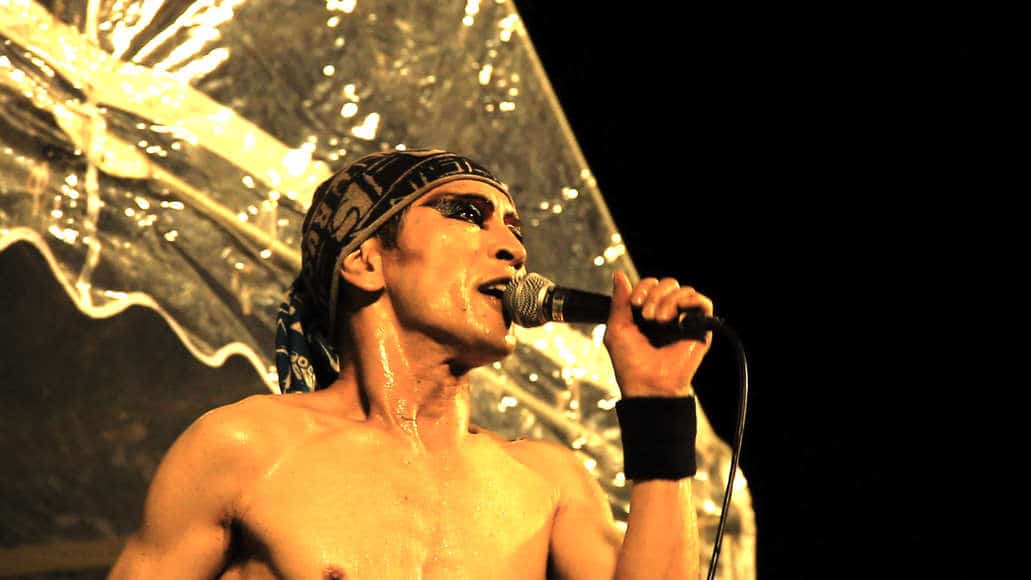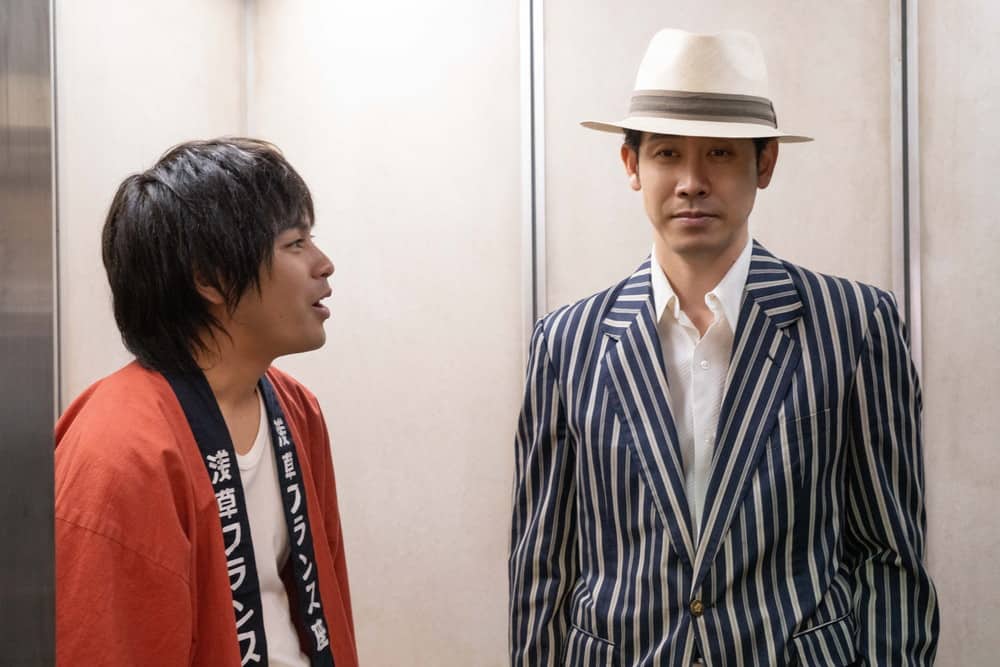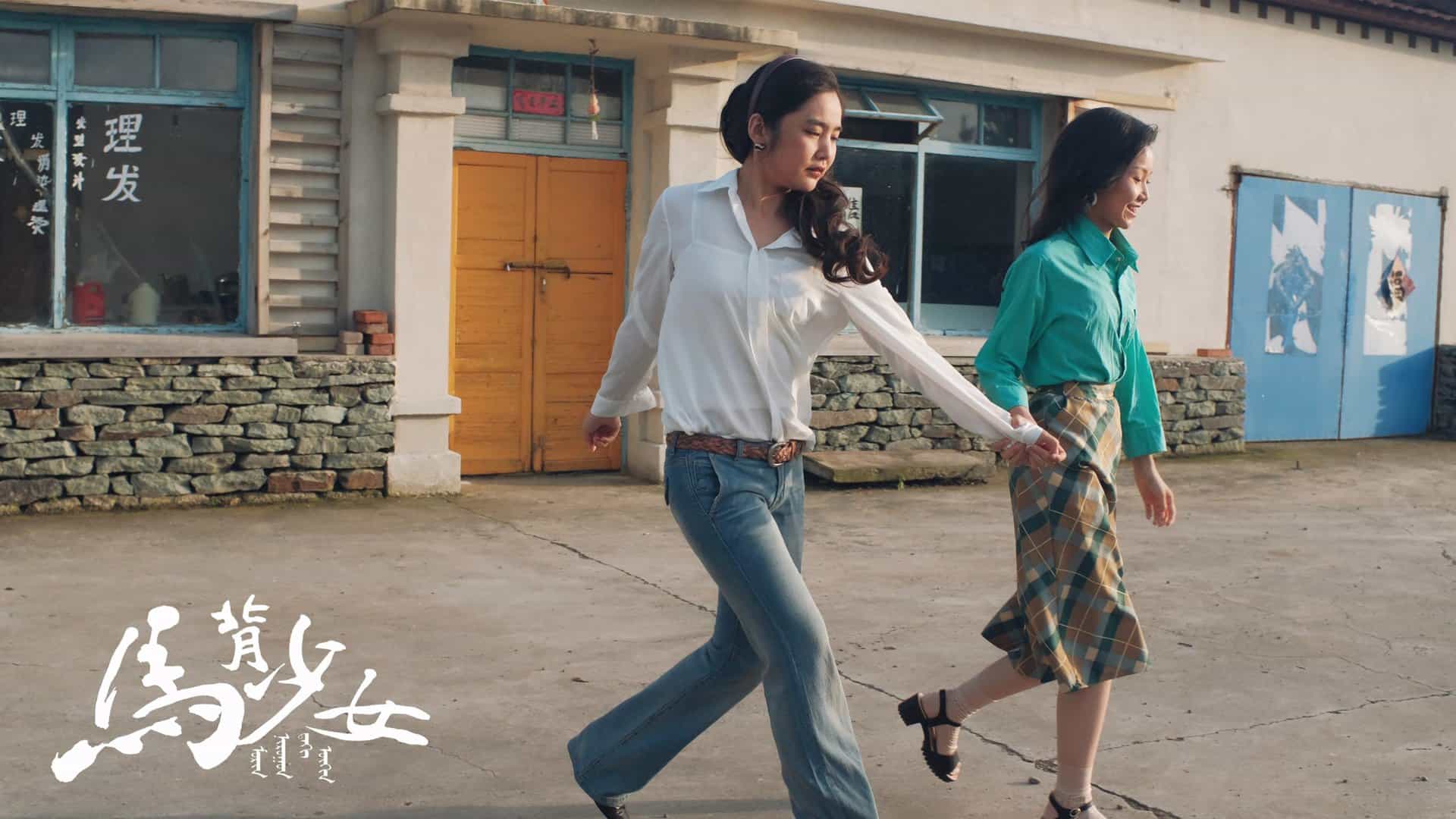China's film industry is the second largest in the world behind Hollywood – although home grown productions tend to struggle both in the domestic and global marketplace. In the first week of release, “Battle of Memories” took almost $22,000,000 at the box office, opening just behind the Hong Kong/China co-production “Shock Wave” (directed by Herman Yau) and “The Fate of the Furious 8” (directed by F. Gary Gray). “Battle of the Memories” is one of the few Chinese fiction science fiction thriller films produced in a market traditionally dominated by historical epics and big-budget fantasies. More remarkable is the fact that Chen dispenses with traditional fantasy conventions and instead combines Asian noir with a largely realist aesthetic in a philosophical mediation on trauma, memory and murder.
“Battle of Memories” will screen at the 9th International Chinese Film Festival, that will be on 23 February to 28, 2018.
Famed author Jiang Feng (Hunag Bo) wants to divorce his beautiful and devoted wife, Zhang Daichen (Xu Jingfei), for reasons that only become clear in the final third of the film. In order to deal with the painful loss that this separation will bring, Feng decides to have memories of their love affair removed – or perhaps more appropriately their emotional associations as the images themselves cannot be deleted – by an organisation called Masters of Memory. After undergoing the process, he is given a memory unit with them on it in case he decides that he wants to retain the memories after all. He has 72 hours to make this decision, after which time the emotional impact of the memories will be lost forever. However Daichen refuses to sign the divorce papers unless Feng has the memories restored. During the memory retrieval something goes wrong and Feng finds himself with someone else's memories. Having a stranger's memories is compounded by the fact that they seem to be those of a serial killer who preys on abused women.
The memories haunt Feng as he is forced to inhabit their involuntary repetition and watch helplessly as women are brutally killed at an unknown perpetrator's hands. Yet, while Feng experiences these violent memories as if they were his own, he is unable to put either a name or face to the killer. Aided by Detective Shen Hanqiang (Duan Yihong), Feng frantically attempts to put together the pieces of the memory puzzle before the 72 hours run out and he is stuck with them for life.
While critics have made obvious comparisons to Steven Spielberg's “Minority Report” (2002) and Michel Gondry's “Eternal Sunshine of the Spotless Mind” (2004), it is perhaps far closer in tone and ambience to the classic Italian giallo – whose origins lie in film noir and the hardboiled books on which the films were based – in which memories of a crime are the structuring feature and the identity of the killer is cloaked in the vagaries of the protagonist's ability to recollect and organise fragments of the past: the traumatic origin of killings in the present.
There is something compelling about the manner in which the story is told. The use of black and white of the past as a contrast to the neon lighting of the present is particularly effective. Science fiction films often offer us a very distinctive visual palate marked by artificiality, ephemerality and saturated primary colours. While shimmering blue is associated with technological utopia, dark browns and yellows connote a dystopic wasteland. Here, the saturated palate of the present is contrasted by the pastness evoked by black and white, both personal and cinematic. Yet, while the past contains fractured images of love and loss, it is haunted by violence and brutality, and in many ways mirrors the present tense of “Battle of Memories” in which Feng finds himself becoming every more like the violent criminal he is chasing. Yet, the film offers us hope as it is has to given the ideological conditions of its production suggesting that the future is not written in stone and that the self is always a process of becoming rather than a fixed being who cannot escape either their genetics or environment.
Huang Bo as the tortured Feng demonstrates why he is considered one of China's leading actors, producing a performance which is always believable and empathetic. In addition, Duan Yihong as Detective Shen, who plays a pivotal role in the film, is suitably enigmatic. While the abuse of women, a problem in China as it is in most countries, is key to the narrative, the women who inhabit the pastness of Feng's memories are not fully developed and remain ciphers of male brutality rather than fully rounded characters.
Past and present are also evoked through the cinematic architecture of the text, which is almost surrealistic in places. Buried just beneath the surface of contemporary China lies the dispossessed past, whose traumatic constitution refuses to stay forgotten. Perhaps at the end of the day, the past always coincides with the present, visible in the gaps and spaces of the landscape of the city mirrored by that of the mind.
While perhaps “Battle of Memories” resolves in a slightly random manner and perhaps doesn't bear a great deal of contemplation, the manner of its execution overcomes any perceived deficiencies in terms of narrative coherence. It is really refreshing to see a big-budget Chinese film that engages us emotionally, intellectually and not just visually.
Battle of Memories is distributed in Australia by China Lion Entertainment















